‘Is Aquaculture Breaking Into the Global Food System?’ was the third seminar of the series co-hosted by Center on Food Security and the Environment (FSE).
Twenty years ago, a highly influential review was published in Nature ‘Effect of Aquaculture on World Fish Supplies’. The review outlined aquaculture as a possible solution, and a contributing factor, to the decline in fisheries stocks worldwide. In this seminar will be looking back at 20 years of aquaculture and seeing how things have changed since the release of this review.
This seminar opened with a short presentation outlining the findings of this 20-year retrospective of aquaculture provided by Dr Roz Naylor, Center on Food Security and the Environment (FSE), Stanford University. This was followed by a video mash-up of academic, industry and consumer views and an interactive discussion on the topic with a diverse panel of experts including panelists Ling Cao, Philippa Cohen, Fernando O. Mardones, Michèle Stark and Jose Villalon. The seminar was co-hosted by Dave Little (Institute of Aquaculture) and Roz Naylor (Center on Food Securty and the Environment, FSE), with closing remarks from Jim Leape (Woods Institute for the Environments, Stanford University). Simon Bush, Alejandro H. Buschmann, Dane Klinger, Sandra Shumway and Max Troell joined the Panel to support live audience questions and answers.
Co-host and presenter Roz Naylor
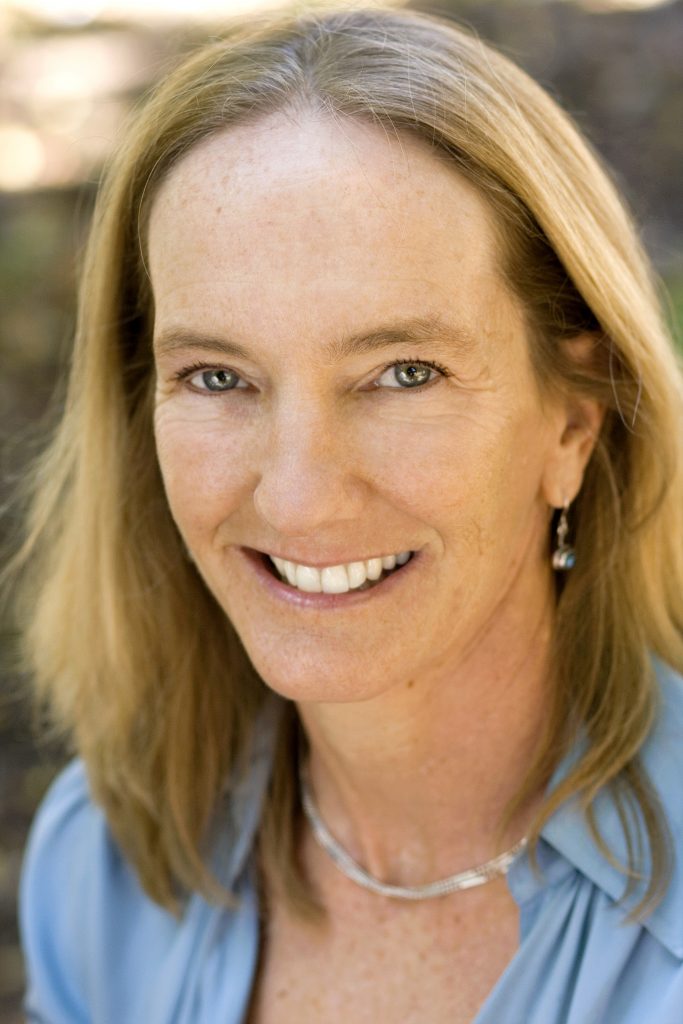
Rosamond (Roz) Naylor
William Wrigley Professor of Earth System Science, Professor (by courtesy) in Economics, and founding Director of the Center on Food Security and the Environment (FSE) at Stanford University.
Roz received her PhD from Stanford University in applied economics, her MSc in economics from the London School of Economics, and her dual BA degrees in economics and environmental science from the University of Colorado. Roz’s research focuses on policies and practices to improve global food security and protect the environment on land and at sea. She has been involved in many field-level research projects around the world with her students and has published widely on issues related to intensive crop production, aquaculture and livestock systems, biofuels, climate change, food price volatility, and food policy. She currently co-chairs The Blue Food Assessment, an international initiative aimed at providing a comprehensive scientific evaluation of the sustainability, nutrition, equity, and justice dimensions of aquatic foods cultured and captured in freshwater and marine environments within the global food system. In addition to her many peer-reviewed papers, Roz has published two books on her work: The Evolving Sphere of Food Security (Naylor, ed., 2014), and The Tropical Oil Crops Revolution: Food, Farmers, Fuels, and Forests (Byerlee, Falcon, and Naylor, 2017). She is a Fellow of the Ecological Society of America, a Pew Marine Fellow, a Leopold Leadership Fellow, a Fellow of the Beijer Institute for Ecological Economics, and a member of Sigma Xi. Roz serves as the President of the Board of Directors for Aspen Global Change Institute and is a member of the Scientific Advisory Committee for Oceana. At Stanford, Roz teaches courses on the World Food Economy, Human Society and Environmental Change, and Food and Security.
Panelists – Ling Cao, Philippa Cohen, Fernando O. Mardones, Michèle Stark and Jose Villalon
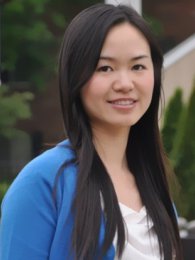
Ling Cao
Associate professor in the School of Oceanography at Shanghai Jiao Tong University (SJTU)
Ling completed her Ph.D. in Natural Resources and Environment at the University of Michigan, Ann Arbor and worked at Stanford University before she joined SJTU. Growing up on a family fish farm in China and trained as an agronomist and environmental scientist, Ling has focused on interdisciplinary research at the interface between sustainable aquaculture and fisheries management and environmental conservation. She has published extensively on sustainable seafood production in high-profile journals such as Nature, Science, and Proceedings of National Academy of Science (PNAS).
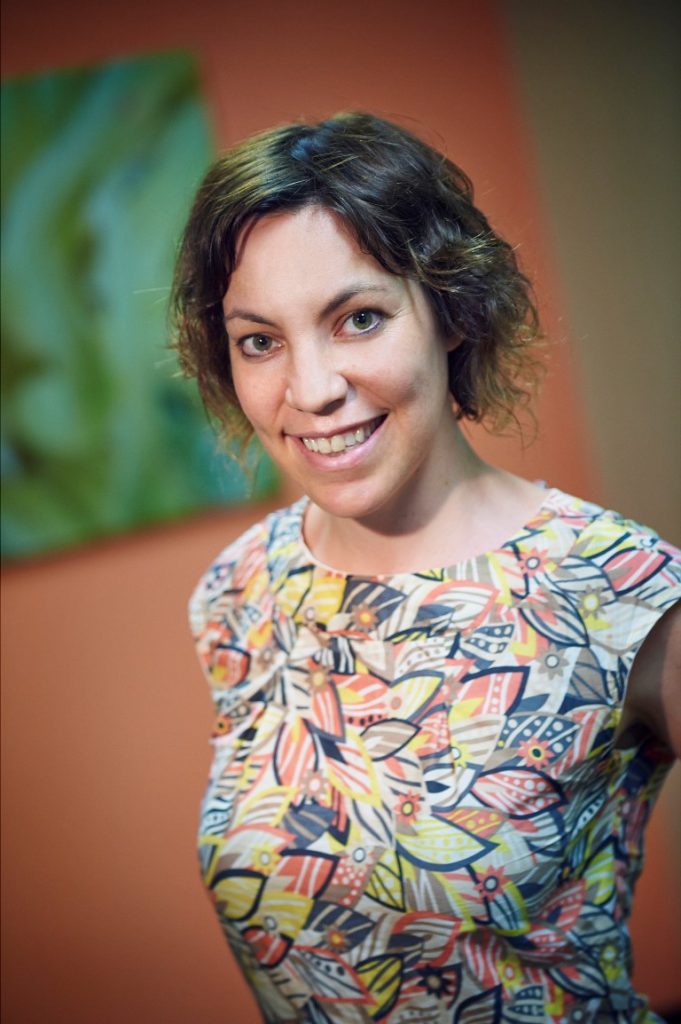
Philippa (Pip) Cohen
Research Leader at WorldFish
Pip is an environmental social scientist with expertise in equitable governance of aquatic resources in the developing world. Her career reflects a commitment to research for development, particularly in countries most vulnerable to the impacts of food insecurity and climate change. Pip is a Research Leader at WorldFish (an international research organisation part of the CGIAR focused on food secure futures), an adjunct Research Fellow at Australian Research Council’s Centre of Excellence for Coral Reef Studies at James Cook University, and an Affiliated Researcher at the Centre for Marine Socioecology at University of Tasmania. Pip’s research seeks to understand, and improve, governance and resilience of coastal communities and their fisheries. Pip’s research appears in the journal Nature, Nature Climate Change, Global Environmental Change, World Development, Ecology and Society, Human Ecology, Food Security, and Fish and Fisheries. Pip has conducted empirical research in Australia, Tonga, Timor-Leste, Solomon Islands, and leads a team of researchers working in the Pacific, Asia and Africa. Throughout her career Pip has been committed to building the capacity and recognition of early career researchers, particularly those from developing countries and women in science.
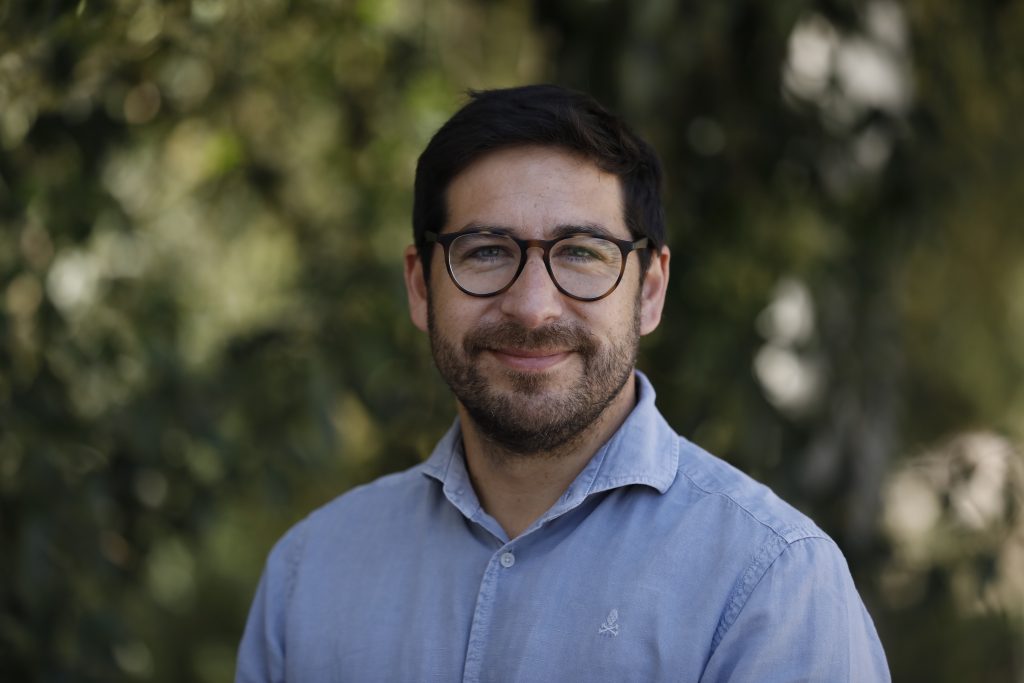
Fernando O. Mardones
Assistant Professor, Veterinary Epidemiology, School of Veterinary Medicine, Pontifical Catholic University, Santiago of Chile.
Fernando’s research include the application of quantitative methods derived from epidemiology and ecology to study the dynamics of infectious diseases associated with aquaculture farming practices from local to large scale spatial extents. Particularly, Fernando study the epidemiology of infectious diseases, the use of antimicrobials and environmental impacts from farmed salmon activities in southern Chile. As FAO expert consultant, he is devoted to promoting sustainable aquaculture not only in farmed salmon settings but also shrimp, seaweed and tilapia around the world.
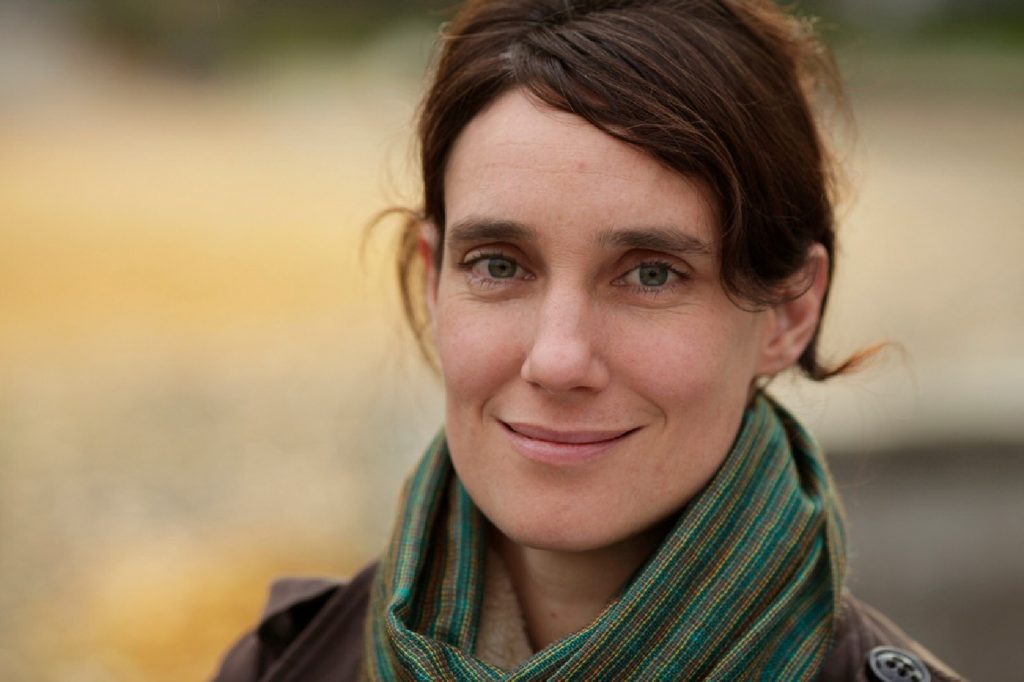
Michèle Stark
Founder and director of Seafood Advisory Ltd.
Michèle Stark is the founder of Seafood Advisory Ltd., a consulting company which provides expert advice on topics related to seafood sourcing and production.
Michèle is passionate about improving the sustainability of seafood production and trade and finding solutions to challenging problems. She has a background in marine biology, coastal science and management, and many years of international, hands-on experience as an auditor, certifier, and manager at the certification body IMOswiss AG, where she founded the Department for Aquaculture & Fisheries and trained and led a global team of auditors.
At Seafood Advisory Ltd. Michèle uses her extensive knowledge of production systems and supply chain management to guide seafood buyers and producers through processes such as developing and implementing sustainable production, traceability, quality assurance or risk management systems. She also advises retail, standard setters, NGOs, government organisations and research institutions and is a member of the Marine Stewardship Council (MSC) Technical Advisory Board and the Monterey Bay Aquarium (MBA) Seafood Watch Technical Advisory Committee for aquaculture.
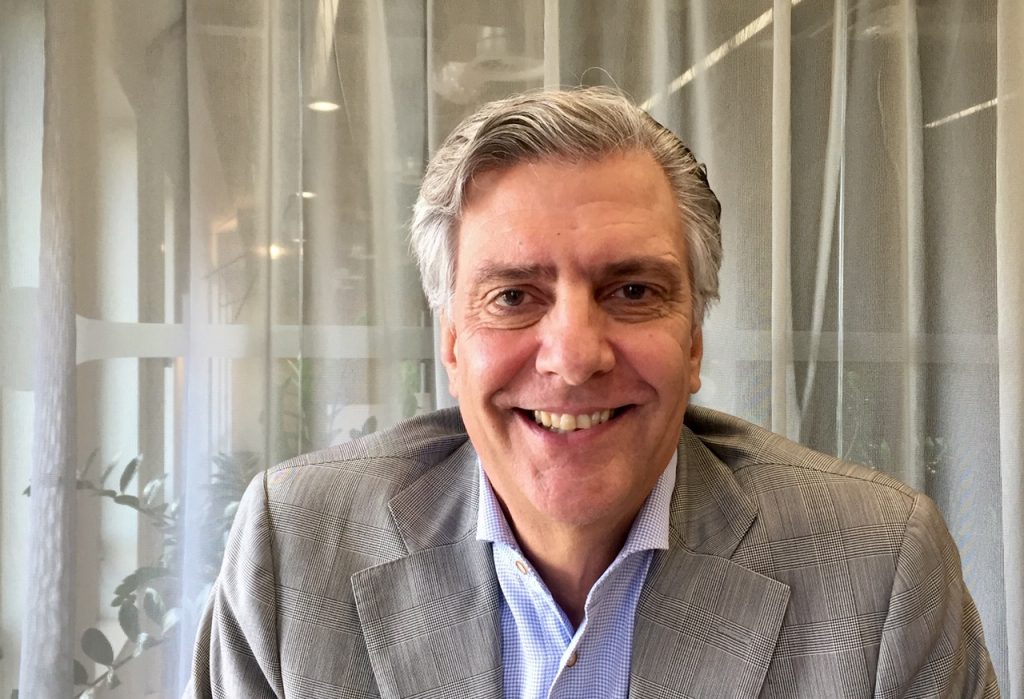
Jose Villalon
Corporate Sustainability Director at Nutreco.
Jose Villalon is Corporate Sustainability Director at Nutreco, based in The Netherlands. Born in Cuba and raised in the USA, Jose received his Master of Science degree in Fish Nutrition at the University of Washington; then went on to 27-years’ experience farming tropical shrimp in the Virgin Islands, Ecuador and Mexico. Jose has been involved in all phases of the production chain including hatcheries, feedmills, farms, processing and export/sales. In 1991, he authored a practical manual for shrimp farming. He then joined the World Wildlife Fund (WWF-US) and led its’ Aquaculture Program for six years; managing the initiative which involved over 2,200 global stakeholders that created environmental/social standards for 12-species of aquaculture commodity products including salmon and shrimp through a global initiative called the Aquaculture Dialogues. Along with WWF and IDH, they co-founded the independent Aquaculture Stewardship Council (ASC) where he was the Chairman of the Board for its’ initial four years. He remains on the ASC Board today. As the Corporate Sustainability Director, he assists Nutreco in accomplishing its Nuterra Roadmap 2025 of sustainability.
Supporting live audience questions – Co-authors of the 2021 review article; Simon Bush, Alejandro H. Buschmann, Dane Klinger, Sandra Shumway and Max Troell
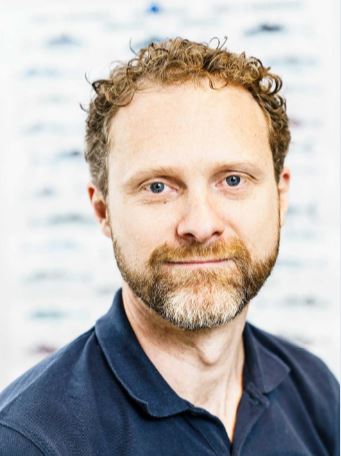
Simon Bush
Chair of Environmental Policy at Wageningen University
Simon holds the Chair of Environmental Policy at Wageningen University in the Netherlands. He has published on public and private governance arrangements for sustainable seafood over the last 15 years. His recently published book, entitled ‘Governing Sustainable Seafood’, explores how market-based arrangements such as certification, FIPs, fishery credit systems and traceability can expand their impact by rethinking their social objectives in driving sustainability.
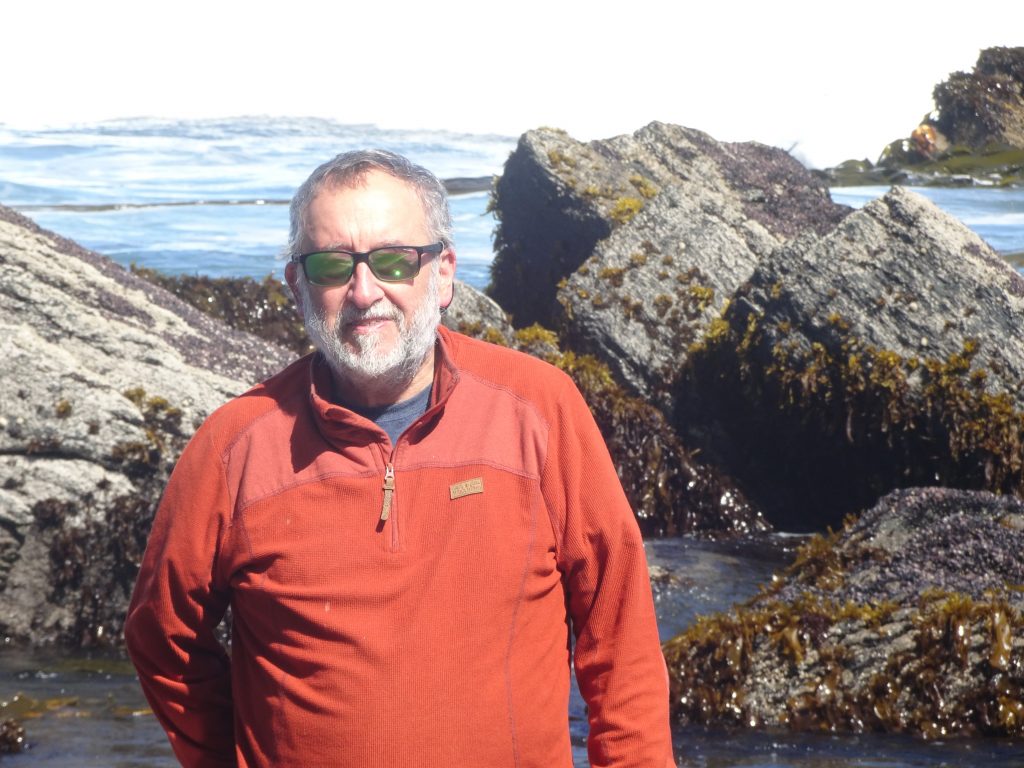
Alejandro H. Buschmann
Professor at i-mar Research Center at the Universidad de Los Lagos
Alejandro obtained his Ph.D. at the Pontificia Universidad Católica de Chile. At the present he is also a senior researcher at the Centre for Biotechnology and Bioengineering. With over 140 peer-reviewed papers and book chapters, in aspects of coastal ecology, seaweed aquaculture, focusing on the role on integrated multi-trophic aquaculture (IMTA) towards a sustainable aquaculture development. Due to his scientific achievements, he was eligible as member of the Chilean Academy of Science. Alejandro is part of editorial committees of scientific journals; Aquaculture, Aquaculture Environment Interactions, Reviews in Fisheries Science and Aquaculture, Perspective in Phycology, and Associate editor of the Journal of Phycology, Journal of applied Phycology and Algal Research. He was the Director of Research and Graduate School at the Universidad de Los Lagos and head of i-mar research Center. He has been designated in different scientific panels of the Chilean Science Agency as well as in national commissions for graduate program quality certification (CNA). As a scientific consultant, he has been able to support seaweed culture developments with the industry and the promotion of the use sustainable environmental technologies for aquaculture with different world stakeholders.
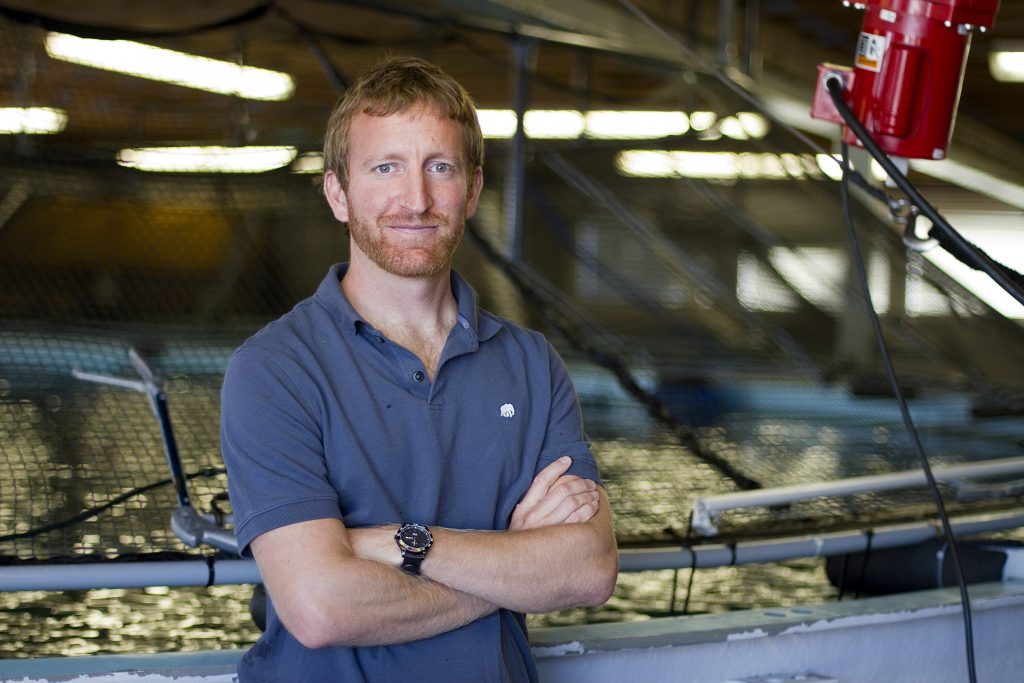
Dane Klinger
Director of Aquaculture at Conservation International
Dane is the director of aquaculture at Conservation International (CI) where he leads CI’s global work on aquaculture governance and management, finance, and innovation. Dane is also a Visiting Scientist at the Harvard TH Chan School of Public Health. He has worked with businesses, foundations, NGOs, and universities in the United States and abroad to develop solutions to a range of challenges in aquaculture and the global seafood trade.
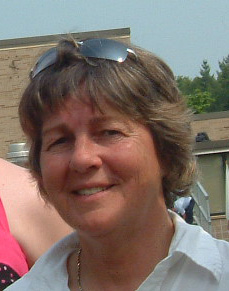
Sandra Shumway
Research Professor of Marine Science at the University of Connecticut
Sandra received her Ph.D. and D.Sc. degrees from the University of Wales. She has authored over 180 peer-reviewed scientific publications, edited eight books, and currently serves as the Editor of the Journal of Shellfish Research (35 years) and Reviews in Fisheries Science and Aquaculture (10 years). She previously served as Editor in Chief of the Journal of Experimental Marine Biology and Ecology (18 years),and is the founding editor of Harmful Algae (18 years). She has also written extensively for magazines, newspapers, and others. A former Marshall Scholar, Dr. Shumway’s most recent and current research is focused on the impacts of harmful algae on shellfish and aquaculture, feeding selectivity and strategies in bivalve molluscs, the control of aquatic nuisance species in marine aquaculture operations, and microplastics. She has received numerous recognitions and awards including Fellow of the American Association for the Advancement of Science, the Long Island University Trustees Award for Lifetime Scholarly Achievement, the David Newton Award for Excellence in Teaching, is an Honored Life Member of the National Shellfisheries Association, an Aldo Leopold Leadership Fellow, Honorary Fellow University of Wales, and the World Aquaculture Society. Her latest book, Molluscan Shellfish Aquaculture: A Practical Guide, will be published in June.
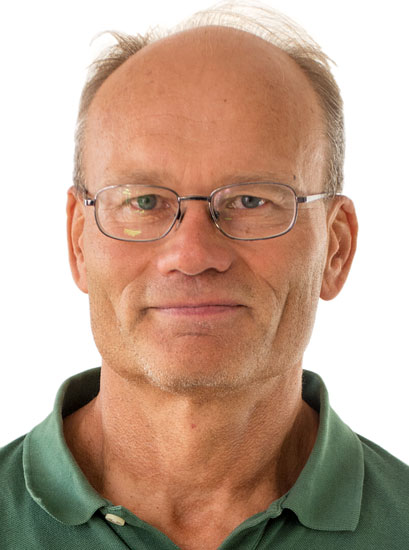
Max Troell
Associate Professor, Program Director and Senior Researcher, Beijer Institute
and Stockholm Resilience Centre
Max is program director of the Sustainable Seafood Program at Beijer Institute, senior
researcher at Stockholm Resilience Centre. A system and marine ecologist
working with a broad range of sustainability and governance issues related to
seafood and marine systems. Vast experience from a diversity of aquaculture
systems and coastal and marine ecosystems and addressing sustainable seafood
utilisation out from a broader social-ecological perspective – embracing both
equity and poverty aspects. Max’s research involves a transdisciplinary perspective on
sustainable use of marine resources with impacts on marine conservation policies
and aquaculture practices of today. A pioneer in contributing to global
development of integrated aquaculture techniques and instrumental in FAOs work
on the Ecosystem Approach to Aquaculture (EAA). Advisor for a number of
organisations and committees and has established strong links with a wide range
of academic and non-academic organisations around the world. Recent work
addresses the global food portfolio and the role seafood can play.